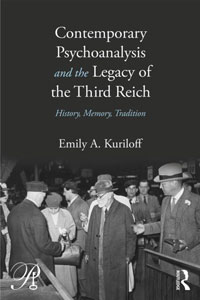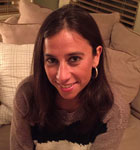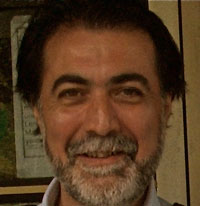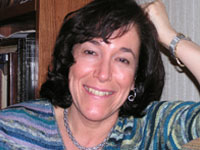By Allison Katz (USA) and Carmine Schettini (Italy), Co-chairs
In January, the IARPP Candidates Committee once again sponsored a web seminar especially designed for candidates and early career clinicians.
This year the presenter was Jody Messler Davies, PhD, and the seminar exceeded expected enrollment and was cyber-standing room only. The title and theme of the seminar was “Love and Hate in the Analytic Relationship.” In addition to presenting one of her classic papers, Jody also provided two new unpublished articles which gave web seminar members a peek at works in progress. If you are a candidate or early career clinician (five years post analytic training or less) be on the lookout for next year’s candidates webinar which traditionally occurs in January.
The Web Seminar Committee also recently completed an engaging and challenging webinar featuring author Emily Kuriloff (USA) in a discussion of her book, Contemporary Psychoanalysis and the Legacy of the Third Reich: History, Memory, Tradition (Routledge, 2014). Featuring interviews with multiple generations of European émigré analysts, Kuriloff’s book illustrates how psychoanalytic theory has been shaped by their experiences before, during, and after the Shoah.
In this webinar, moderated by Christina Emanuel (USA), the participants explored the question, “who do we become as analytic thinkers, practitioners, and co-participants when we speak of the Shoah?” Over the two weeks of the seminar (which ran from March 5 to 18) the group thought together about the ways in which theories are ontologies, world-views immersed in particular times and places. Closely related is the notion of theory as trauma, in that it is also defined by what is absent, by trauma that has been avoided, repressed, dissociated, and unformulated within a family, a profession, a culture. Finally, the group took up psychoanalytic theory as process, one constructed via interpersonal/relational events.
Hailing from 14 countries, the 86 participants included many newcomers in addition to some frequent IARPP webinar participants partaking of this unique learning format. As the group discussed the psychoanalytic family after the Holocaust, they productively addressed the inherent difficulty identifying what is distinctive about anti-Semitism while also holding its complexity. As the group reflected upon the psychoanalytic family after the Holocaust, it gave this topic – as one participant put it – “the context it deserves.”
Our next web seminar will take place from July 2 to 15, and will take place in Spanish. Entitled, “¿Existe una técnica relacional?” (“Is There a Relational Technique?”), this webinar will be led by author Carlos Rodríguez Sutil (Spain) and moderated by André Sassenfeld J. (Chile). Panelists will include Juan José Martínez (Spain), L. Raimundo Guerra (Spain), Manuel Aburto (Spain), Ariel Liberman (Spain), Neri Daurella (Spain), Alejandra Plaza (México), José Ángel Aguilar Gil (México), Juan Francisco Jordán (Chile), and Roberto Arendar (Argentina).
Following this Spanish-language program, there will be a webinar in Italian this fall. The title will be “Così lontano così vicino: quando non possiamo essere entrambi nella stessa stanza per il nostro dialogo terapeutico e utilizziamo la tecnologia” (“So Far So Near: When We Cannot Both Be in One Room for the Therapeutic Dialogue and Use Technology”). Led by faculty including Sara Biondi, Alioscia Boschiroli, Simona Caprilli, Susanna Federici, Ilaria Merici, Gianni Nebbiosi, Marco Ponta, Maria Silvia Soriato, Paolo Stramba-Badiale, and Maria Tammone (all from Italy), this webinar will run from September 24 to October 7. It will be moderated by Carmine Schettini.
Stay tuned for more information about these and other web seminars.
 Allison Katz, LCSW
Allison Katz, LCSW
Email Allison Katz
 Carmine Schettini, MD
Carmine Schettini, MD
Email Carmine Schettini



